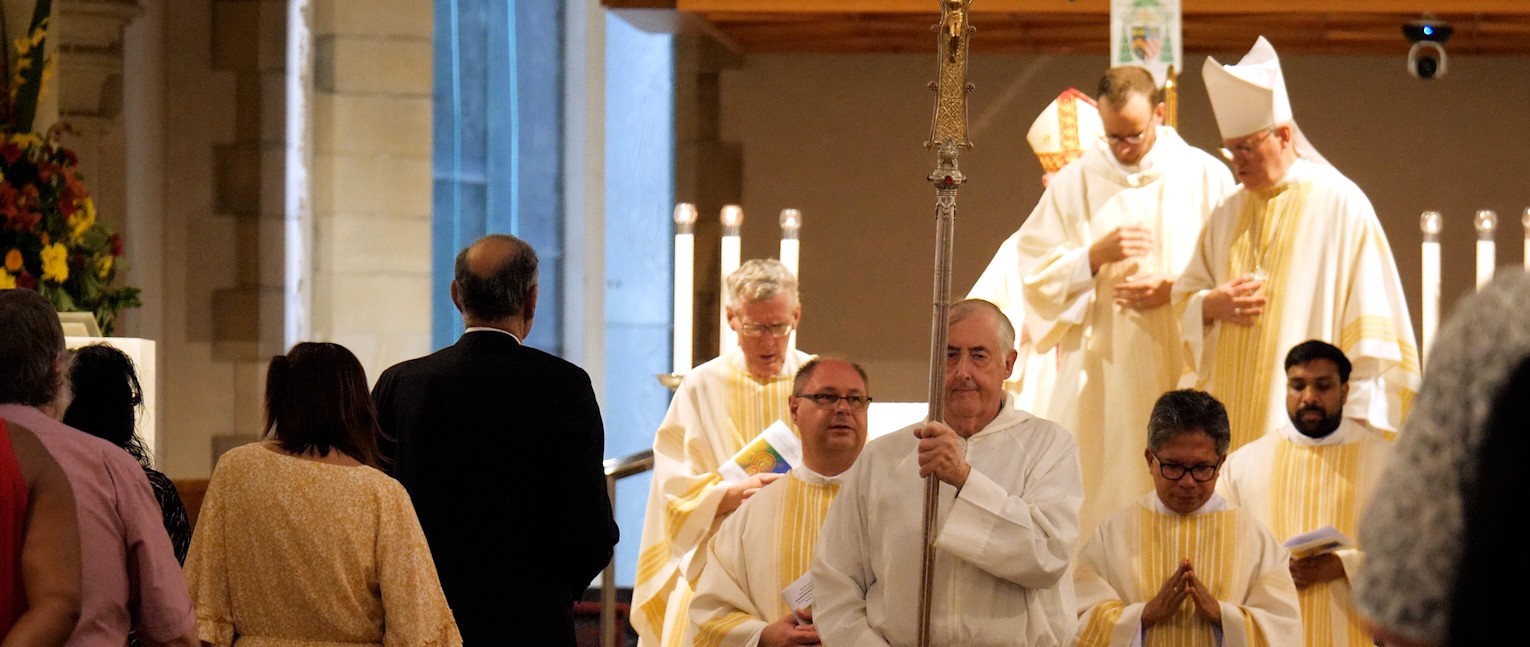The Dismissal
National Liturgical Council

The word ‘Mass’ comes from the Latin word Missa part of the verb meaning ‘to send’. Until 2008, the Mass in Latin always used to end with the phrase, Ite, missa est, that is, Go, you are sent, though the words were often translated by Go, the Mass is ended. Both translations are correct – the current English translation says Go forth, the Mass is ended.
Thus this little word ‘Mass’ makes it clear that the Eucharist empowers us for mission. Renewed and strengthened by the food and drink from heaven, we are sent back into our everyday lives to be missionary disciples.
In English, we have long had several alternatives to the words of dismissal. One of most well known was, Go in peace to love and serve the Lord. These words were meant to spell out a little more fully the missionary dimension to the eucharistic celebration.
In 2008, after recommendations from the 2005 Synod of Bishops, the Holy See introduced several alternatives in the Latin text of the Missal which are now translated as:
- Go forth, the Mass is ended.
- Go and announce the Gospel of the Lord.
- Go in peace, glorifying the Lord by your life.
- Go in peace.
It is clear that a large part of our work in the world is making peace – not just among our family and acquaintances, but also lending our support to world peace among nations. This is how we proclaim the Gospel in word and action, and how our lives can offer God glory and praise. It is these few words that express most powerfully the connection between liturgy and life. What we do in church on Sunday is our motivation to live good moral lives and give witness to the coming of God’s kingdom of justice and right.
The Concluding Rites in the Mass are extremely short: we are simply blessed and sent. Sometimes the blessing can be solemnly extended, but the few words of dismissal are always blunt and to the point. Don’t miss them!
